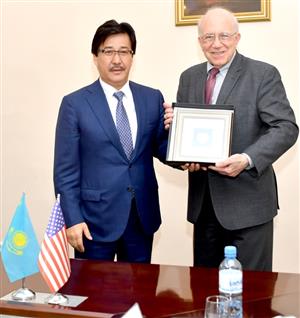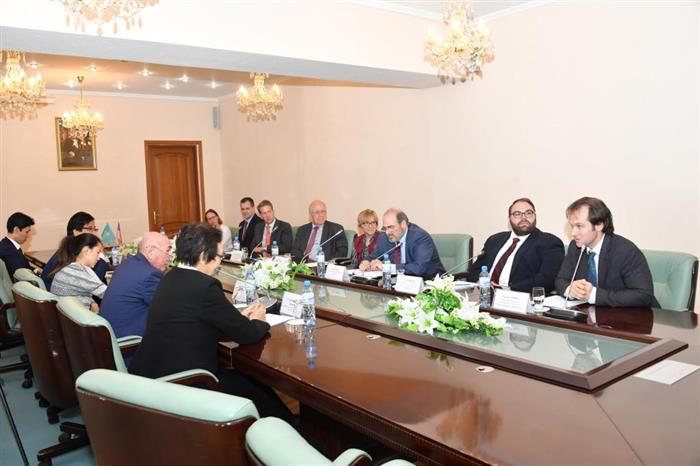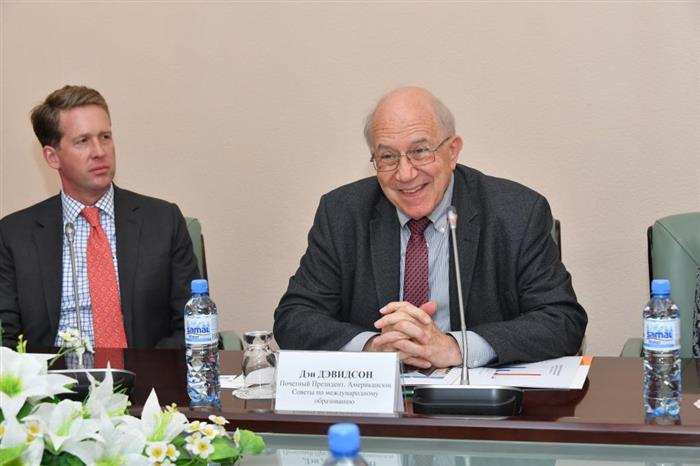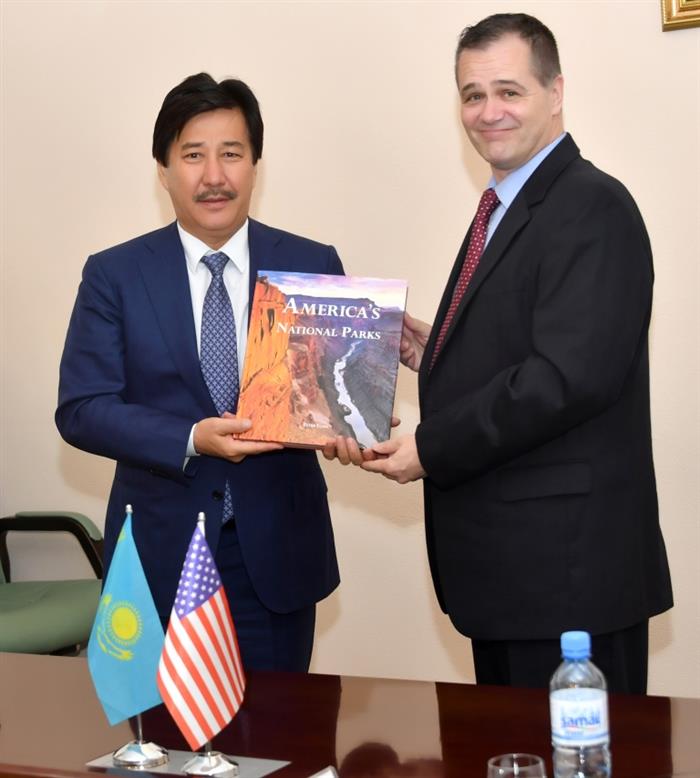- Main page
- News
American Council in KazNU
4/25/2019
The American Council on International Education intends to expand the Language Flagship program, which has been successfully implemented at Al-Farabi KazNU. The Honorary President of the American Council, Dan Davidson, voiced such a proposal during a meeting with the University management.
Welcoming the US delegation, KazNU’s Rector Galym Mutanov highlighted that over 80 students with a high level of Russian have been trained under the Russian Overseas Flagship program since the conclusion of an Agreement in 2014 on the provision of educational services. The program provides possibility for students of the two countries to learn language, necessary specialties, and practice in various organizations.
For example, in the period from 2018 to 2019, 114 students and teachers of KazNU visited the United States. Today, 29 students from the United States study at the Faculty of Philology and World Languages and the Faculty of International Relations.
The Rector has also acquainted the guests with the activities and achievements of the University. For instance, in December last year, the successful launch of the Al-Farabi-2 nanosatellite from the Vandenberg military complex (California) took place. Al-Farabi-2 was among the 64 satellites launched by the SpaceX Ilona Mask Company. It was pointed out that KazNU heads the UN Global Hub on Academic Impact and the UNESCO Regional Hub on Sustainable Development in Central Asia, effectively fulfilling the mission entrusted to it by the UN.
«KazNU is one of the attractive partners, which for many years has gained a high positive reputation. Moreover, the fact that the University promotes 4.0 Model is very inspiring. The University is powerful and universal, and each of our interns will certainly find the required courses and seminars», - said Dan Davidson, expressing his gratitude to the University leadership for the warm welcome.
The Director of the National Flagship program, Sam Eisen, noted with great appreciation of the high performance based on testing, the quality of methodical implementation of the program, the success of cultural adaptation, and personal development and language training of students. During the talks, the parties highlighted the significant successes of the US students who are learning not only Russian, but also the Kazakh language, history and culture of Kazakhstan.
At the end of the meeting, the parties expressed their appreciation for the results of work, and outlined ways for the further development of mutually beneficial partnership.




